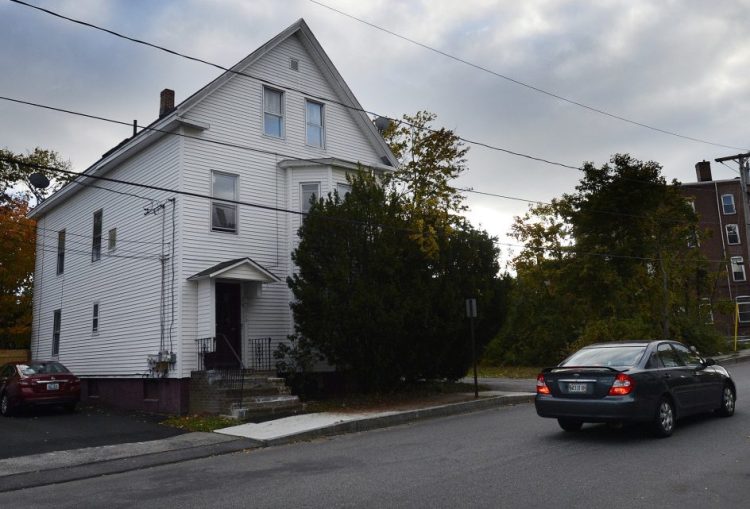Maine’s top court has upheld a decision to fine a Portland landlord more than a half-million dollars for life safety and building code violations.
The Maine Supreme Judicial Court ruled that Sulan Chau forfeited her arguments against the fine when she did not show up for her January trial in the lower District Court. The justices also ruled that the penalty was warranted because Chau had ample time and opportunity to fix her Woodfords Corner apartment building and avoid the city’s legal action.
Chau will now be required to pay $510,300 plus attorney’s fees and interest to the city. It is the largest fine imposed for code violations in recent memory and part of an effort by the city to get tough on safety standards after a deadly fire in 2014.
“The evidence confirms that the city clearly identified multiple code violations on Chau’s property that posed immediate threats to the safety and health of her tenants; it advised her of those violations; it undertook reasonable efforts to work cooperatively with her to remedy those violations; Chau nonetheless failed to address many of the significant fire and life safety violations until after the complaint was filed; and Chau failed to appear at trial, even after having attended the initial appearance in the matter,” Chief Justice Leigh Saufley wrote in the unanimous opinion released Tuesday.
A city spokeswoman said the decision sends a message to other landlords in Portland.
“We want people to know that the city of Portland takes the safety of its renters seriously,” Jessica Grondin wrote in an email. “While we’re grateful the majority of landlords work collaboratively with us, we feel this ruling sends a strong message to the few who are resistant to prioritizing the safety of tenants.”
Chau’s attorney, Roy Pierce, did not immediately respond to a request for comment Tuesday.
During oral arguments in October, he challenged the fine in part because the city waited so long to take legal action. He also questioned the method used to calculate the fine and said at least one violation should not have been subject to a civil penalty. The total penalty was more than twice the value of the apartment building.
“It took the city 2½ years to take some action,” Pierce said at the time. “There were periods where there were four, five, seven, eight months … of no action whatsoever in connection with my client’s building. The delays the court was required to have considered unnecessarily inflated the amount of penalties imposed against my client.”
Anne Torregrossa, associate corporation counsel for the city, told the justices that the city gives most landlords the time to undertake costly fixes.
“The argument here today is, shame on the city for trying to be cooperative, shame on the city for trying to allow a property owner to do the right thing,” she said. “And at least in the city’s mind, that is a very difficult position to put us in. … Because the reality is, most do. Most landlords do the right thing because it is important to them, No. 1, to protect the lives of their tenants, No. 2, to save their own liability, and No. 3, to avoid significant penalties.”
The city ramped up code enforcement citywide after six young adults died in a November 2014 fire at an apartment building on Noyes Street. It was Maine’s deadliest fire in 40 years. The tragedy led to Portland’s creation of a new Housing Safety Office, which oversees a registry of about 2,600 landlords and helps firefighters inspect rental units. The city also has been more aggressive in taking unresponsive landlords to court.
Court records show that Portland officials had inspected Chau’s building on Woodford Street as many as 10 times starting in May 2015. They identified more than a dozen violations, including obstructed exits, a lack of smoke detectors, electrical problems, “numerous instances of bed bugs” and leaky sewer pipes. Obstructed exits and a lack of working smoke detectors were among the factors in the fatal Noyes Street fire.
The city’s attorney wrote in her brief for the justices that Chau was difficult for the inspectors to work with or reach on the phone. She would make just enough progress for the city to continue working with her toward voluntary compliance. But some violations, such as obstructed exits, excessive storage and lack of fire doors, went uncorrected for more than two years. The city finally filed its civil complaint in November 2017.
Chau did not appear for the trial in January, and Maine District Court Judge Peter J. Goranites based the fine on the number of days each violation went uncorrected and the city’s efforts to gain compliance.
Grondin said Tuesday that the violations at the Woodford Street building have been fixed, and the city has not received new complaints. Portland officials are now working with Chau to correct violations at another property, she said. The city had not yet heard from Chau regarding the fine, Grondin said.
“Now that we have the decision from the Law Court, we will be pursuing our options for post judgment collection, including potentially forcing the sale of the property if necessary,” she wrote.
Megan Gray can be contacted at 791-6327 or at:
mgray@pressherald.com
Twitter: mainemegan
Send questions/comments to the editors.




Comments are no longer available on this story